Advocating for cancer survivorship: Conversations close to the heart (Part 1)

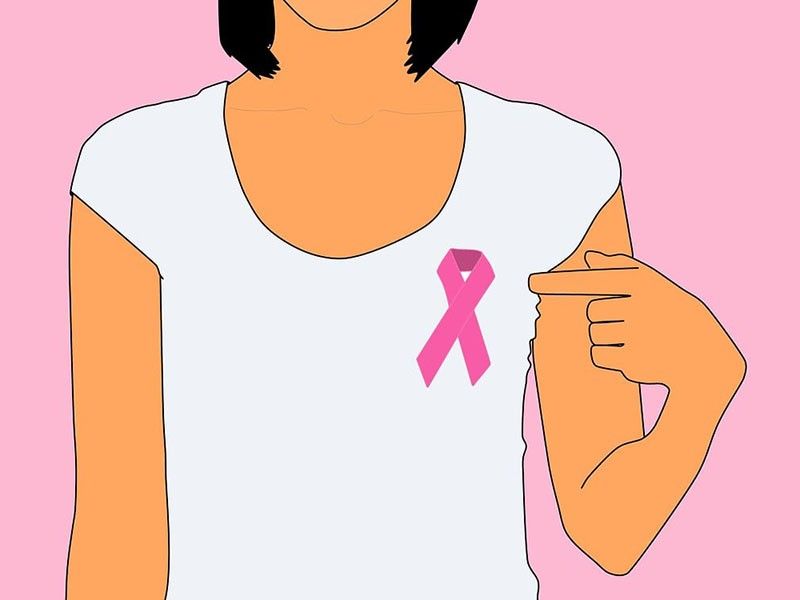
“There can be life at the end of the cancer journey: the prerequisite is early detection and swift medical action.”
These were the words of American actress Ann Jillian who, in 1985, was diagnosed with breast cancer. She would go on to be a survivor and live to share her story, and her advocacy for cancer survivorship.
Today, the fight against breast cancer continues.
It’s a sad fact to know that this type of cancer is one of the most common and fatal diseases among Filipino women. 27,000 new cases are reported every year in the Philippines, and in previous studies, our country had one of the highest breast cancer mortality rates in Asia.

But there is hope! This I can confidently say as I witnessed the commitment and passion of many individuals, organizations, and agencies sharing their expertise during the 5-part roundtable discussion (RTD) series on breast cancer awareness that I recently moderated on behalf of the Swiss Chamber of Commerce of the Philippines.
During the RTDs, a clear consensus was established among panelists: breast cancer survivorship is anchored on early detection.
Early detection, however, is facing a significant barrier among Filipinos. According to Department of Health (DOH) Undersecretary Maria Rosario Vergeire, patients often forgo proper treatment until it's too late due to financing.
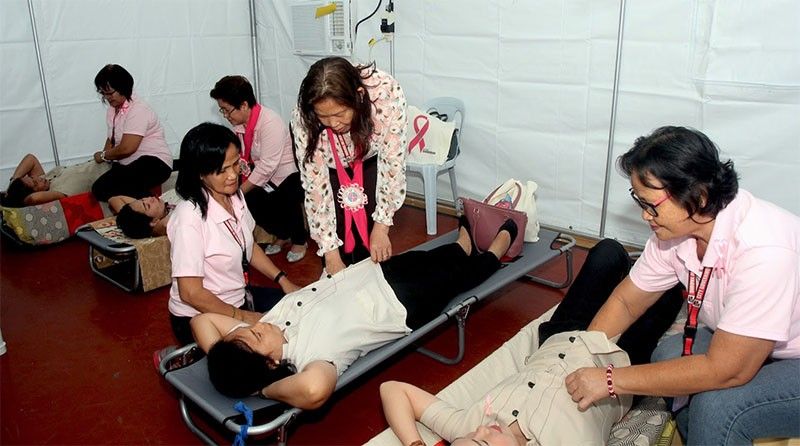
Dr. Corazon Ngelangel, President of the Philippine Cancer Society, also added that it was lack of awareness, late diagnosis, inadequate access, and low screening rates that were contributing to the inflated rate of advanced cancer stages, which also leads to higher mortality and morbidity rates.
But beyond financial barriers, Dr. Ngelangel pointed out that “the burden of the diagnosis of treatment continues to impact all aspects of the patient’s life,including physical, emotional, cognitive, social, and spiritual.
As the RTDs went on, I realized that when we’re someone’s immediate support structure, we have a significant influence on the success of early detection.
Dr. Buenaventura “Bill” Ramos, former president of the Philippine Society of Medical Oncology, shared that cancer was still regarded with stigma – given the costly treatment and low survivorship. This leads to low morale and poor psychological standing, becoming a root cause of the challenges in fighting cancer.
But when emotional and comprehensive support is present, potential cancer patients can find the motivation to seek medical attention and consultation.

Cancer conversations and advocacy efforts play a crucial role in shaping the landscape of cancer care in the Philippines. These discussions not only raise awareness about the importance of early detection and treatment but also have a profound impact on various aspects of cancer care.
With less stigma surrounding cancer treatment, more people can now recognize the risk factors, symptoms and the significance of regular screenings, and encourage individuals to take proactive steps towards early detection, which can ultimately lead to more successful treatment outcomes.
Moreover, our public discourse and advocacy also wield the power to influence government policies. In response to the growing concern over breast cancer, our country has been prompted to allocate resources and develop policies that address the specific needs of cancer patients. The National Integrated Cancer Control Act, an example of this success, is improving access to screening and treatment facilities, and expanding health insurance coverage for cancer-related expenses.
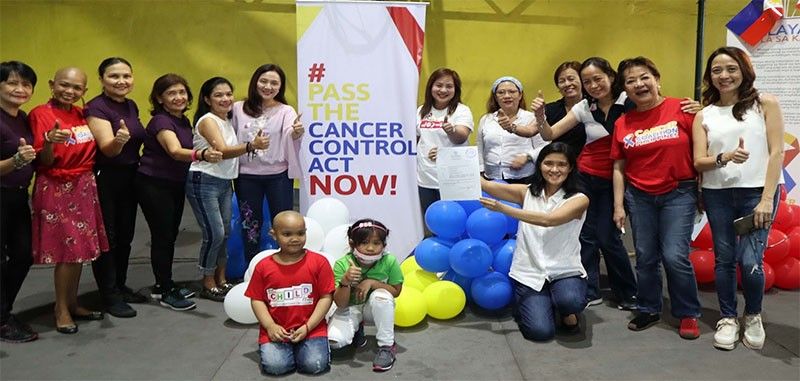
As a concerned member of our community, what’s the role we can play?
Cancer conversations help destigmatize the disease. By openly discussing cancer and sharing stories of survival, individuals living with cancer are empowered to seek the support they need without fear of judgment. Reducing the stigma surrounding cancer encourages more people to access healthcare services and engage in early detection efforts.
Our advocacy efforts are rarely ever in vain, as well, as these can often lead to the formation of supportive communities and networks. These communities provide emotional and practical support to cancer patients and their families.
Public awareness and advocacy can also drive research and medical advancements. As more attention is drawn to the importance of early detection and treatment, researchers are motivated and incentivized to develop innovative diagnostic tools and therapies.
The RTD panelists agreed that improved health literacy through conversations and education could bolster collaboration between healthcare professionals and researchers, leading to improved treatment options and outcomes.
One of the most important takeaways, for me, is that through the power of conversation on cancer, people can become active participants in their own care.
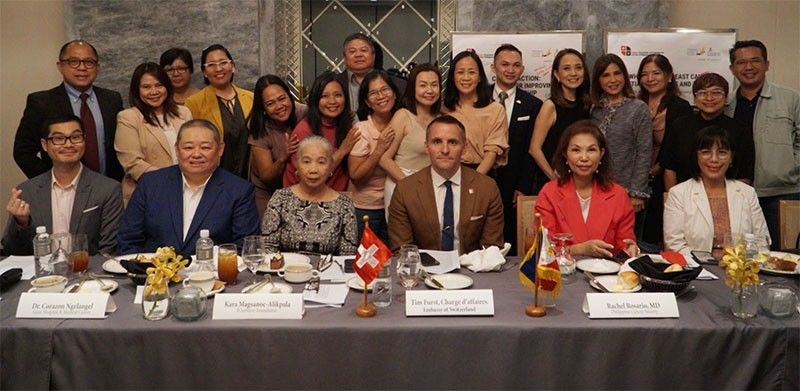
Informed patients are more likely to seek early diagnosis, ask questions, and make decisions that align with their values and preferences. This patient-centered approach to cancer care can lead to better treatment experiences and improved quality of life.
Beyond early detection, cancer conversations also emphasize the importance of adopting healthy lifestyles and preventive measures.
At the end of the RTDs, a call to action was presented by Kara Alkipala, the Founding President of ICanServe Foundation and Vice President for Internal Affairs of Cancer Coalition of the Philippines. This sought to establish that participants were committed to achieve the targets set by the World Health Organization’s (WHO) Global Breast Cancer Initiative, including: (1) diagnosis of at least 60% of breast cancers between stage I and II; (2) complete evaluation within 60 days, and (3) enable 80% of patients to undergo treatment and return home.
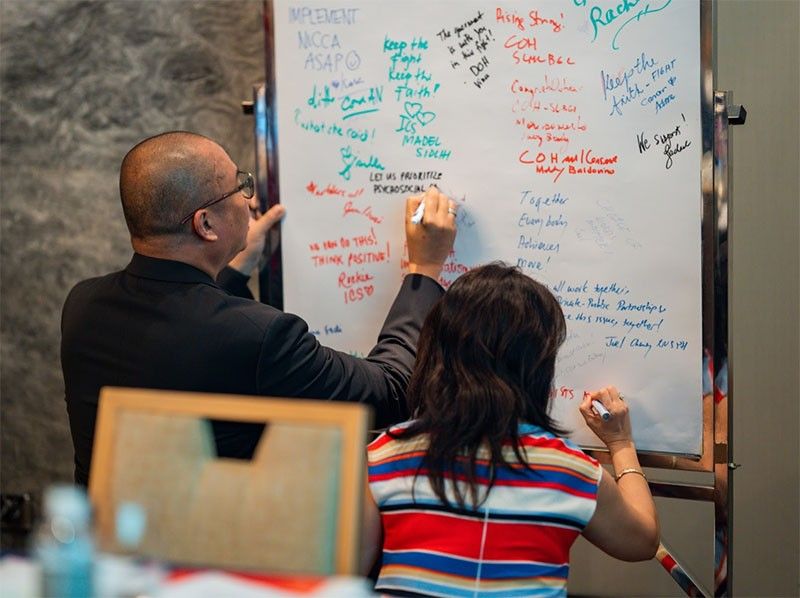
Conversations on breast cancer may still be too sensitive to engage with today, but the benefits our cancer patients can reap are worth it. As the people closest to cancer patients, we hold the privilege to help family, friends, and our loved ones take the first step towards early detection of breast cancer—it’s a conversation that’s truly close to the heart.
___
You can follow my social media accounts: Instagram, Facebook, YouTube, Tiktok, Twitter and Kumu. Please share your stories or suggest topics at editorial@jingcastaneda.ph. Watch Pamilya Talk on Facebook, YouTube and Kumu (@JingCastaneda – 12:00 noon, Monday) and on Jeepney TV every Saturday at 5 p.m.



















